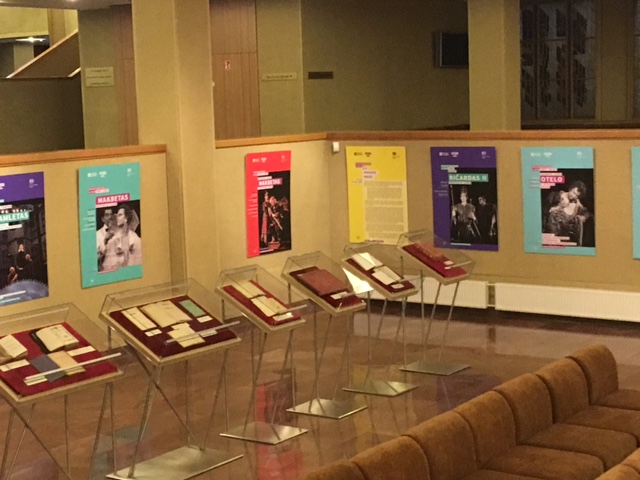On 14 December we will hold an event to open the British Embassy’s exhibition on William Shakespeare at the Lithuanian Parliament.
2016 is, of course, the 400th anniversary of Shakespeare’s death. He is a great British cultural figure familiar around the globe. Half the world’s schoolchildren study his work. His plays have been performed in countries from Australia to Zimbabwe. This year the UK has celebrated the Shakespeare Lives campaign around the world.
Shakespeare is familiar to people across Lithuania. There have been a number of notable productions of his plays, from Hamlet to the Tempest. He was the theme at the Kino Pavasaris film festival in Vilnius in March. As Lithuanian film critic and writer Rytis Zemkauskas says, ‘When it comes to fiction, Shakespeare is unsurpassable… My understanding is that normal popular culture wouldn’t be possible without Shakespeare.’ Vilnius University Library, who has very generously partnered with us on several Shakespeare events, has an impressive collection of Lithuanian Shakespeare texts in the many languages which have been part of Lithuania’s history and culture, including Othello which was first translated into Hebrew in Vilnius.
Shakespeare has had a significant impact on culture across Europe. This has not only been through the performance of his plays but also the way they have inspired new works of art, from literature by Turgenev and Goethe, to music by Prokofiev, Berlioz, Verdi and Brahms. Shakespeare has also had an influence on politics in Europe. In the 20th century his plays were appropriated by ideological movements on the left and right. But they still served effectively as powerful symbols of protest, insistently ‘speaking truth to power’ against the odds and making a case for the continuation of European values.
It is true to say too, that Europe had an impact on Shakespeare. Many of his plays are set across Europe; indeed only a handful of plays are not set outside Britain. His work reflects the close ties – cultural, philosophical, trade, political – between the UK and the rest of Europe in his lifetime. These strong ties are, of course, closer and more relevant than ever today.
I believe that the Lithuanian Parliament building, as parliament starts a new term, could not be a more fitting location to celebrate the impact Shakespeare has had on Lithuania and Europe over the past 400 years and still has now. His plays still resonate across Europe not only because his themes – such as love or jealousy – still speak to modern audiences, but because his plays still speak to common European values and culture.

